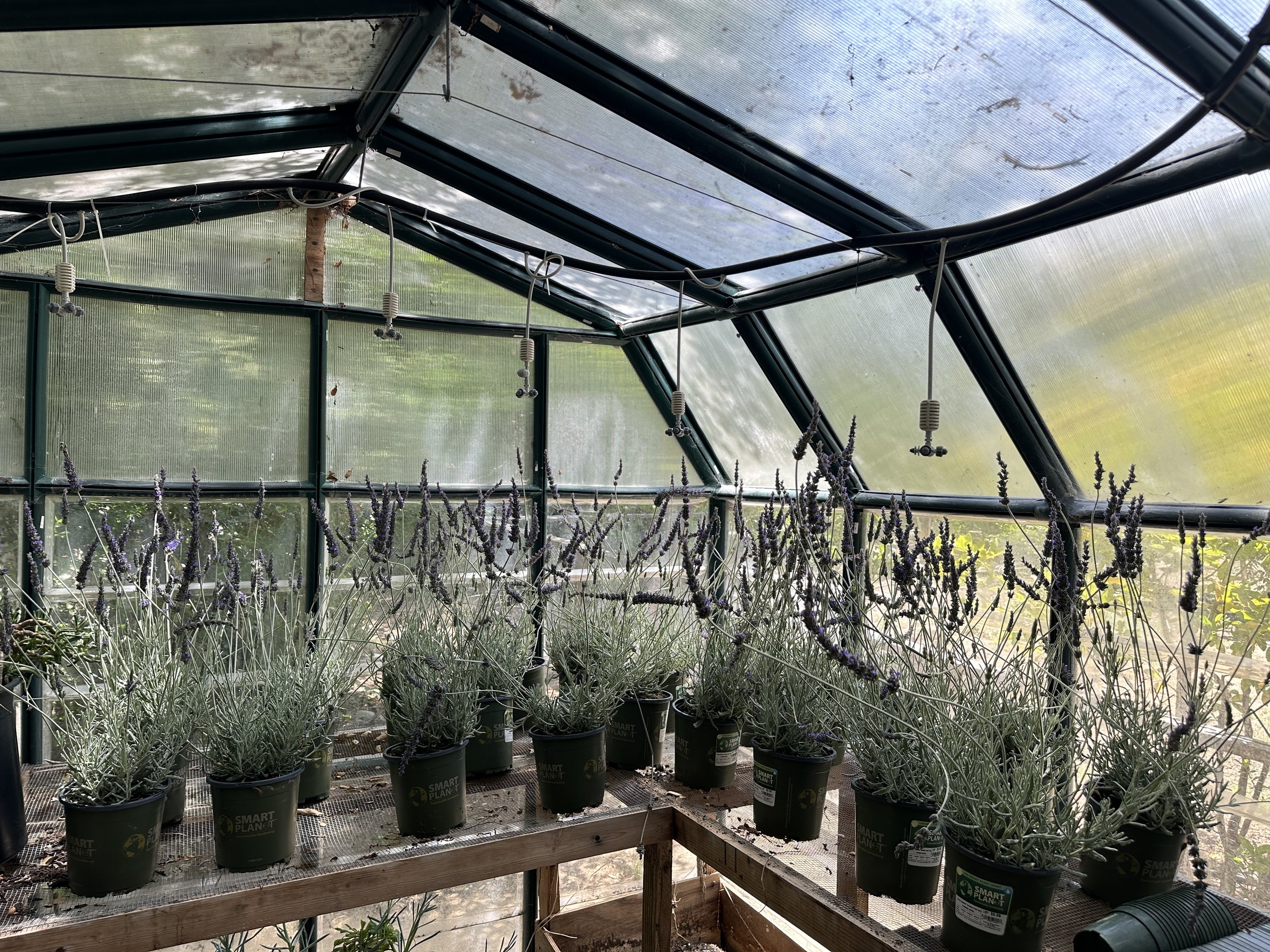Over Memorial Day weekend, Home Depot had a big sale—and I came home with two dozen lavender plants, each at half price. It felt like a little gift from the universe, arriving right when I’d been imagining ways to bring more beauty and tranquility to the property. Ever since Katy and I visited Butterfly Mountain—a retreat center with walking paths lined in full-grown lavender—I’d been inspired to do the same here. There’s something about that burst of purple, the soft hum of bees, and the scent in the air that instantly soothes the soul.
I kept the plants in our greenhouse for a few weeks while I worked on prepping the land. Then, finally, I had time to plant. I chose the path that winds through the orchard—connecting the middle and upper parts of the property. It’s a transitional space, and I loved the idea of giving it more life and presence.
Lavender as a Spiritual Ally
Lavender may be beautiful, but its meaning runs deeper than appearance. Spiritually, it’s often associated with purification, devotion, and healing. Known for its calming properties, it supports the nervous system and promotes peace, both physically and energetically. You can burn it as an incense or diffuse its essential oils before meditation to clear stagnant energy and soften the mind.
There’s something poetic about using lavender to line a pathway. Like a gentle guardian, it ushers you from one place to another. Whether guests are walking that path with a cup of tea or returning from a workshop in silence, I hope they feel a shift, however subtle.
The Meditation of Planting
Planting lavender under the sun became its own kind of meditation. There’s a presence required—digging the hole to just the right depth, feeling the roots, gently shaking off excess soil, covering the base again with care. I could feel the shift in my attention as I worked: no screen, no to-do list, just this lavender and this earth.
It’s a full-body meditation, activating nearly all your senses. The color pulls your eyes toward it, the fragrance is immediate and relaxing, the soil cool in your palms, and the bees weaving in and out of the plants. When you slow down like that, nature opens up a little more.
Shared Vision, Shared Rituals
Later, Katy joined me by the path. She crouched down to smell the leaves and lit up with ideas. Lavender is a staple in any herbalism practice, and she immediately started imagining all the ways she could use it: infusing oils for massage, crafting herbal sachets, distilling small batches of essential oil. She talked about making tea blends to serve during retreats, a simple offering guests could sip on while arriving or winding down.
That moment reminded me how much of this land we’re building together. The work we put in is not just for us—it’s for the people who come here, the practices we’re nurturing, and the calm we want to extend to others.
Faith in Time
Lavender can be tricky to establish. It needs good sun, drainage, and careful watering in the early stages—but once it takes root, it’s strong and drought-tolerant. In a way, it mirrors the meditation practice itself. At first, it’s fragile. You have to show up every day. Tend to it. Be patient.
When we plant, we’re placing faith in time. We’re trusting the earth, the sun, and ourselves to keep showing up. Just like meditation, the benefits aren’t always immediate—but with patience and care, they bloom.
And even if I don’t get to see these plants at their peak—because who knows what changes might come down the line—it still feels right to plant them. Someone planted the cacti, the oaks, the fruit trees I now enjoy. This is my offering in return.








